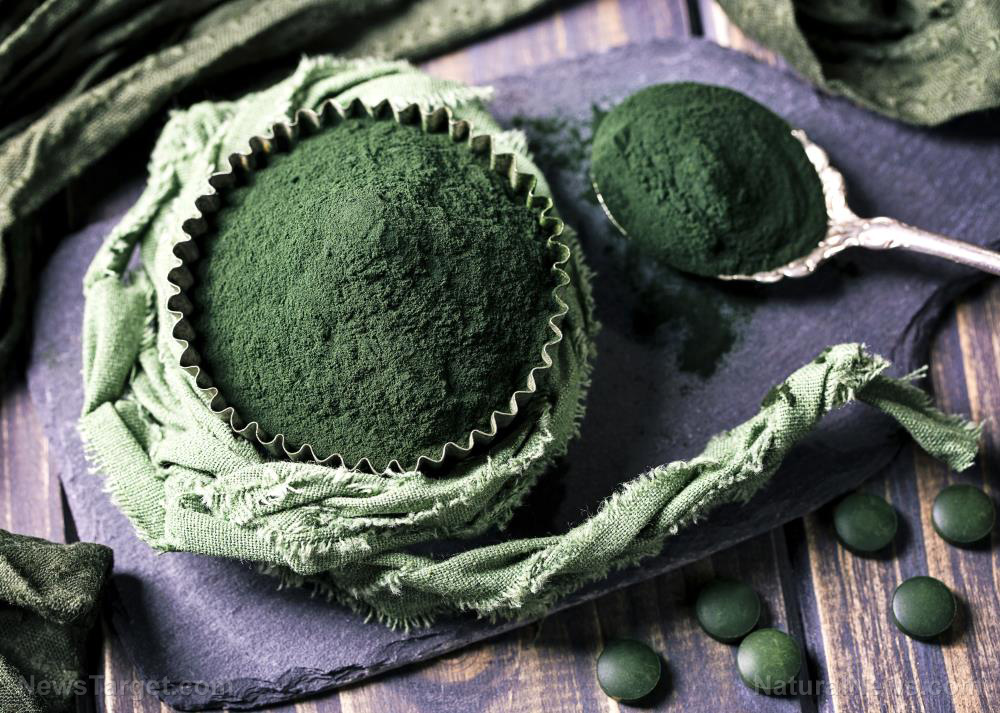
Advertisement
Algae are a highly diverse group of marine microbes and seaweeds that capture sunlight to make their food. Some kinds of algae are edible and, in fact, have been part of the human diet for many centuries. Some of these edible algae are considered superfoods because they are packed with important nutrients and have a number of health benefits, such as reduced inflammation and improved gut health.
Spirulina and chlorella are two well-known algae commonly sold as supplements, but there are others that are equally beneficial to your health. One such health-promoting alga is a species of green algae called Chlamydomonas reinhardtii.
The Food and Drug Administration classifies the biomass of C. reinhardtii safe for human consumption. More importantly, studies show that it may help combat a range of conditions, including irritable bowel syndrome (IBS).
A 2020 study, for example, has found that the green algae improves gastrointestinal health, promotes weight loss and has no adverse on the gut microbiota, or the entire community of microorganisms in the gut.
Green algae boost gut health
For their study, a team led by researchers from the University of California, San Diego fed mice with acute colitis (short-term inflammation in the colon) the biomass of C. reinhardtii for two weeks. They found that the mice lost a significant amount of weight after taking the green algae.
The researchers then gave the same biomass to a group of participants with and without symptoms of IBS. IBS is a common chronic condition that affects the large intestine. The symptoms of IBS include cramping, abdominal pain, bloating and diarrhea or constipation, or both.
The participants consumed spoonfuls of powdered C. reinhardtii every day for a month and reported changes in their gastrointestinal health. Of the hundreds of participants who took part in the project, 51 met the study’s requirements.
Those who frequently experienced gastrointestinal issues reported significantly less bowel discomfort and diarrhea, significantly less gas or bloating and more regular bowel movements. Stool samples from the volunteers also showed that their gut microbiota remained diverse, which is a sign of a healthy gut, and that the green algae did not cause any major changes in their gut microbial composition.
“The benefits of consuming this species of algae were immediately obvious when examining the data from both mice and humans who suffered from gastrointestinal symptoms,” said marine scientist and lead author Frank Fields.
Other researchers have been studying C. reinhardtii as a potential nutraceutical for several years, but the study was the first big breakthrough.
“People have been looking at this algae for decades, but this is the first study to show what many of us have suspected – it’s good for you,” said algae expert and study author Stephen Mayfield. “This is exciting because it demonstrates a clear benefit: If you have IBS-like symptoms, this is good for you.”
The researchers suspected that these benefits might be due to a nutrient in the green algae or a change it caused in the gene expression of gut bacteria. However, they noted that more studies are needed to determine exactly how the green algae improve gastrointestinal health.
Other kinds of algae with health benefits
Spirulina and chlorella are considered superfoods because they are chock-full of health-promoting nutrients. The biomass of both of these algae is harvested and turned into supplements.
Spirulina, a kind of blue-green alga, is a rich source of protein, copper, thiamine and phycocyanobilin, which is a plant compound known to strengthen the immune system. In addition, it delivers all of the nine essential amino acids that your body cannot make on its own.
Those amino acids contribute to a host of essential functions, including tissue repair, nutrient absorption, muscle creation and recovery from an injury. They include methionine, tryptophan and phenylalanine.
Meanwhile, chlorella is a single-celled alga that is super rich in vitamin A, zinc, iron, riboflavin and omega-3s. It also contains all of the nine amino acids that your body cannot make.
Chlorella has a slight nutritional advantage over spirulina because it has higher amounts of certain nutrients, such as vitamin A and healthy fats. However, some studies suggest that spirulina may harbor more protein.
All the same, both algae are nutrient-dense and confer a number of health benefits. For instance, studies suggest that chlorella can help prevent cardiovascular disease and non-alcoholic fatty liver disease. Meanwhile, there is evidence that spirulina wards off cancer and protects against certain viral infections.
How to eat algae
Here are a few ways to eat algae such as spirulina and chlorella:
- Add to smoothies, soups and sauces. You can include algae powder when you puree fruits or make dips, condiments or soups.
- Use as a salt substitute. Saltwater algae has a naturally salty taste.
- Use as a flavoring. Some algae products have a grassy flavor while others taste like lobster. You can make a matcha-like dessert with grassy algae powder or put together a savory meal with seafood-tasting algae.
Edible algae are amazing superfoods with a host of health benefits. Green algae, for example, improve gastrointestinal health while spirulina and chlorella deliver essential amino acids. Incorporate algae into your diet to reap these benefits.
Sources:
Advertisements







